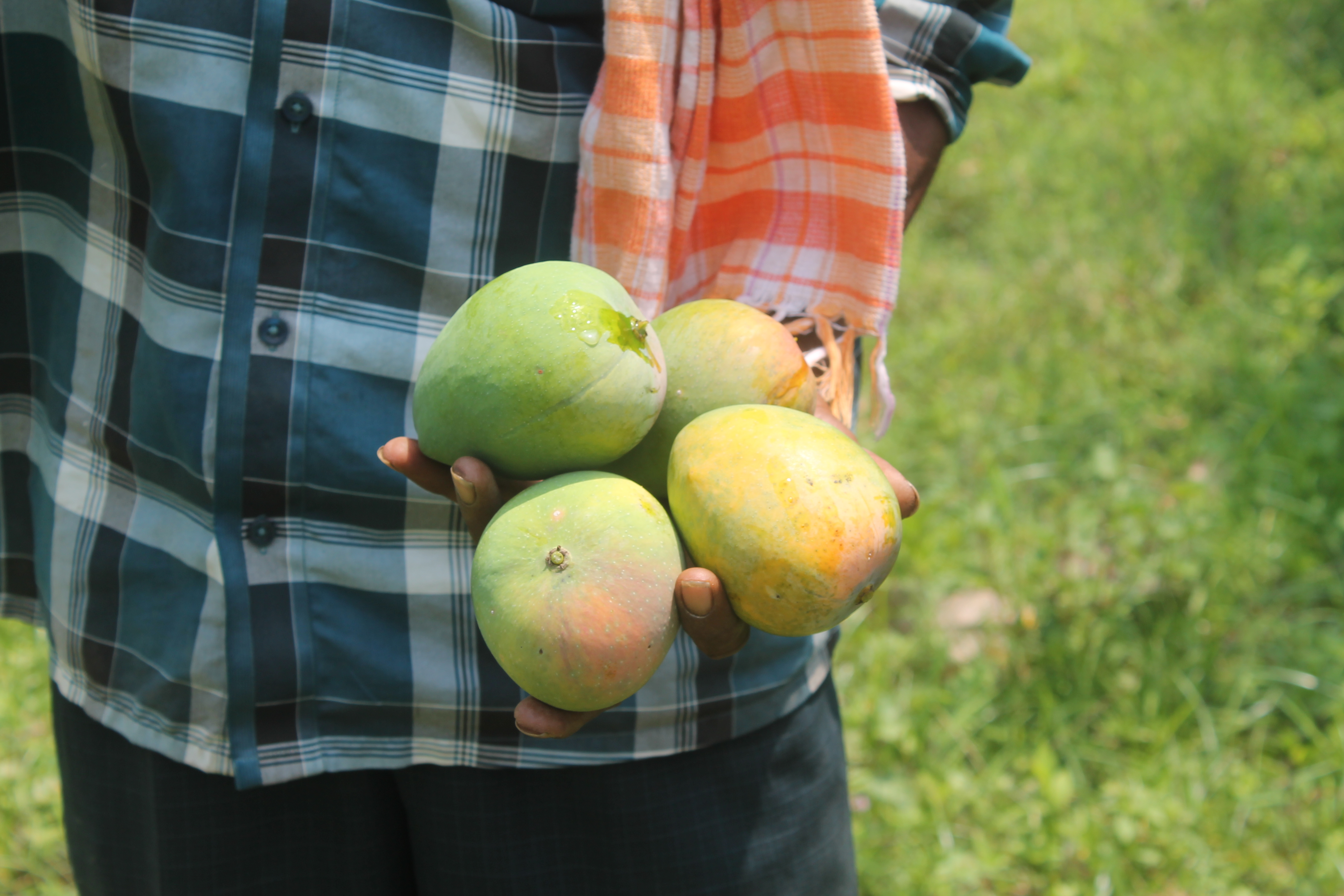
The Wild Forage
- By Arkin Chakravorti
13 May 2020
My internship experience with the Foundation for Ecological Research, Advocacy and Learning (FERAL) was enormously fun and enlightening. My internship with the Frontier Elephant Programme (FEP) lasted for two weeks and was packed with meaningful work, insightful knowledge, and really bad dad jokes.
On my first day, I woke up at 4:30 a.m. and was picked up by Nishant Srinivasaiah, an elephant biologist, in his Maruti Gypsy. We then picked up Nicole, one of the other members of FERAL, and set off to a farm in Palya, Tamil Nadu, a three-hour drive away from FERAL’s office.
During the ride, Nishant explained how elephants were entering mango farms near the forest to feed on fruit, and causing significant financial losses and frustration for farmers by damaging their crops. He discussed the potential dangers both farmers and elephants faced, and how such negative interactions could reduce the farmer’s tolerance towards the elephants.
We would be working with Anand Reddy in Palya to find effective long-term solutions to this problem. But for the time being, a more short-term solution would be needed. The mangoes were almost ready to be harvested, so elephants came to his farm almost every night. In additional to eating fruit, sometimes they dropped some branches and fruit. Farmers would often use this fruit as animal fodder or simply discard them, as they were unable to find buyers.
In an effort to reduce some of the monetary stress he faced, we would sell these mangoes in Bangalore at a reduced price, as most of them had been prematurely harvested.
All proceeds from the sale would go to Anand and his family to compensate them for their losses.
After a long bumpy ride, we finally arrived at Reddy’s farm around noon and were warmly greeted by him and his family. The first thing I noticed about Reddy and his father was their long hands and arms, and I thought maybe their limbs had become tall and slender from generations of picking mangoes from far-reaching trees.

After greeting Reddy and his family and trying some of their delicious organic mangoes, we went for a walk with Reddy and his family around the farm. During the walk, Reddy shared some of the daily challenges he faced, which included birds and insects eating the mangoes, and of course, the recent elephant visits and the subsequent crop damage that they incurred.
While Nishant carefully listened to the Reddy’s concerns, I was distracted by the beauty of the farm. Within the peaceful, green fields, there were rows upon rows of lush mangoes trees, most of them bearing unripe Badami and Mallika mangoes. The farm was sparsely occupied by tranquil cattle and goats whose presence added to the serenity of the farm. I noticed how to keep out elephants and other uninvited visitors, the farm’s perimeter was protected by an electric fence--although, I doubt that the fence had any success in deterring the larger foragers.
After capturing numerous photos of the farm and its inhabitants (we did not encounter any elephants), we loaded a few 100 kilos of mangoes into the loyal Gypsy and set off back to the city. On our way back to Bangalore, Nishant, Nicole and I exchanged stories and awful dad-jokes to forget about the sweltering afternoon heat. Upon reaching FERAL’s office in Bangalore, we unloaded the mangoes and separated them based on their quality with the help of Abhilash, another one of FEP’s members. 
The next few weeks were busy as we had to package, distribute and promote the mangoes we had collected at Reddy’s farm. At FERAL’s office, I responded to mango orders from buyers and designed promotional posters and logos.
The poster had to send one clear message: these mangoes were shared with elephants.
The mangoes were selling quickly. During my last week with the team, FEP sold mangoes in collaboration with Black Baza, a sustainable and biodiversity-friendly coffee enterprise at an event called Bhoomi Habba. Bhoomi Habba is an annual fair that aims to increase public awareness of the environmental issues faced in Bangalore and showcases inclusive and sustainable alternatives to daily home products. I helped promote the mangoes and explain FEP’s mission statement to curious children and adults at the fair. I had the opportunity to engage and network with other sustainable enterprises (e.g., organic soap-makers, bakers, and organic food vendors) during the event. Afterwards, I helped Nishant deliver the mangoes to organic grocery stores and eco-friendly restaurants in Bangalore.
Overall, the internship never felt like work. FEP’s meaningful goals motivated me to learn and contribute as much as possible. Moreover, Nishant and his team were knowledgeable, friendly, and down to earth; making the whole experience far more enjoyable. Although I did not see any elephants during my time in Palya, I am happy knowing that we sold mangoes that were “Shared with Elephants.”

Write Your Comment